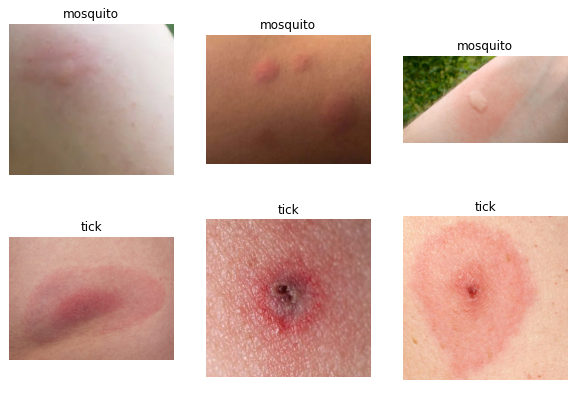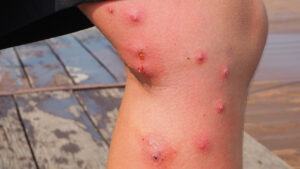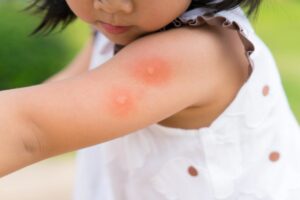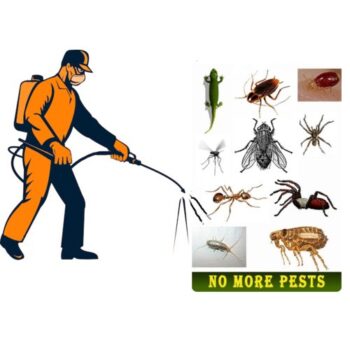
Effect of Insect Bites And Stings of Our Body
Insect bites and stings are common and usually cause only minor irritation from their bites. However, some stings can be painful and trigger a severe allergic reaction.
Insect bite by making a hole in your skin fill your stomach. Most insects inject venom into your skin to protect themselves.

Symptoms of an insect bite or sting
When an insect bites, it releases saliva which can make the skin around the bite area reddened and there may also be swelling and itching. The venom of the sting can often also cause swollen, itchy, red marks (scarring) on the skin. It can be painful but is not harmful in most cases. The affected area is usually sore and itchy for a few days.
The severity of bites and stings varies depending on the type of insect and the sensitivity of the individual.
Insect bites and stings can sometimes cause a severe allergic reaction (anaphylaxis) in some people, which requires immediate medical treatment.
Should I go to the doctor?
See your doctor if you have a lot of swelling and blisters, or if there is pus, which could indicate an infection.
Call an ambulance or doctor immediately if you have any of the following symptoms:
- wheezing or difficulty breathing
- nausea, vomiting, or diarrhea
- rapid heartbeat
- feeling dizzy or faint
- Difficulty swallowing (dysphagia)
- confusion, anxiety, or restlessness
Insect bites and stings treatment
Place a cold-pressed (a flannel or cloth soaked in cold water) on the affected area to reduce swelling
Do not scratch the affected area to avoid infection and if you have severe pain or swelling, take painkillers such as paracetamol or ibuprofen.
If your reaction is more severe, your doctor may prescribe other medications or refer you to an allergy clinic for immunotherapy.
Protection against insect bites and stings
If you work outdoors or regularly participate in outdoor activities, such as camping or hiking, you are more likely to get insect bites and stings.
- Applying insect repellent and covering your skin will help avoid insect bites or stings.
- If you encounter wasps, beetles, or bees, back away slowly and don’t panic (don’t move your arms around or try to kill them).
Symptoms
- Insect bites and stings often develop a small lump, which is usually very itchy.
- Stings or a small hole may also appear on the wound itself. There may be swelling (redness) around the lump that may be fluid-filled. it can be called a scar
- Insect bites and stings usually heal on their own within several hours and can be treated safely at home.
Types of insect bites
The symptoms caused by different types of insect bites are listed below.
- Midges, Mosquitoes, and Gannets
- Bites from midges, mosquitoes, and gannets often cause small bumps on your skin that are usually very itchy. If you are particularly sensitive to insect bites
- Blisters (fluid-filled blisters)
- Swelling (swelling, fluid-filled roundness around the bitten area)
- Mosquito bite malaria in some areas of tropical countries.
Flea (insect)
- Flea bites can be grouped in lines or swarms. If you are particularly sensitive to flea bites, it can cause a condition called popular urticaria (where many itchy red bumps form). Blistering may also occur.
- Fleas from cats and dogs can usually bite below the knees, mostly around the ankles. They can also affect the front of the hand if you are petting or holding your pet.
Dollfie
A dollfie bite can be very painful. You may also feel swelling around the bite area:
- Urticaria – inflammatory rashes (also called hives, welts or nettle rashes)
- dizzy
- weakness
- wheezing
- angioedema – itchy, pale pink or red swelling that often occurs around the eyes and lips for a short time
- Dolls bite the skin when bitten, so a doll bite can take a long time to heal and can lead to infection.
Some precautions you can take to reduce your risk of being bitten or stung by an insect are listed below.
- If you encounter a wasp, wasp, or bee, move away slowly without panic. Don’t swing your arms around or attack them.
- Cover exposed skin. If you are going outside at a time of day when insects are particularly active, such as sunrise or sunset, cover your skin by wearing long sleeves and trousers.
- Wear shoes when going out.
- Apply insect repellent, especially in summer or autumn when pests are more likely to occur. It should be applied on exposed skin. Insect repellents containing diethyltoluamide (DEET) are considered the most effective.
- Avoid using products with strong perfumes like soaps, shampoos, and deodorants, as they can attract insects.
- Avoid places like flowering plants, outdoor areas where food is served, garbage, and compost. Remove any fallen fruit in your garden regularly and carefully, and keep a well-fitting lid on the trash can.
- Never disturb insect nests. If the nest is in or near your home, arrange for it to be removed. Wasps make nests in areas such as trees and terraces.
- Avoid camping near water, such as ponds and marshes, as mosquitoes and horseflies are commonly found near water.
- When eating out, keep food and drinks covered, especially sweets. Wasps or bees can also get into open drinking bottles or cans that you are drinking.
- Keep doors and windows closed or put thin mesh in the door to prevent insects inside the house. Keep your car windows closed to prevent insects from getting in.

Insects can be seen everywhere whether in your home or outside the house. It is better to get rid of them before they bite, as they can harm your body. It would be better if you take a solution from a nearby pest control company. These companies are more effective in getting rid of insects in a better way. One such of the best company is 24×7 pest control, which helps in getting rid of all kinds of insects in very easy ways, whether it is your home or office. Contact us: 9810034344

